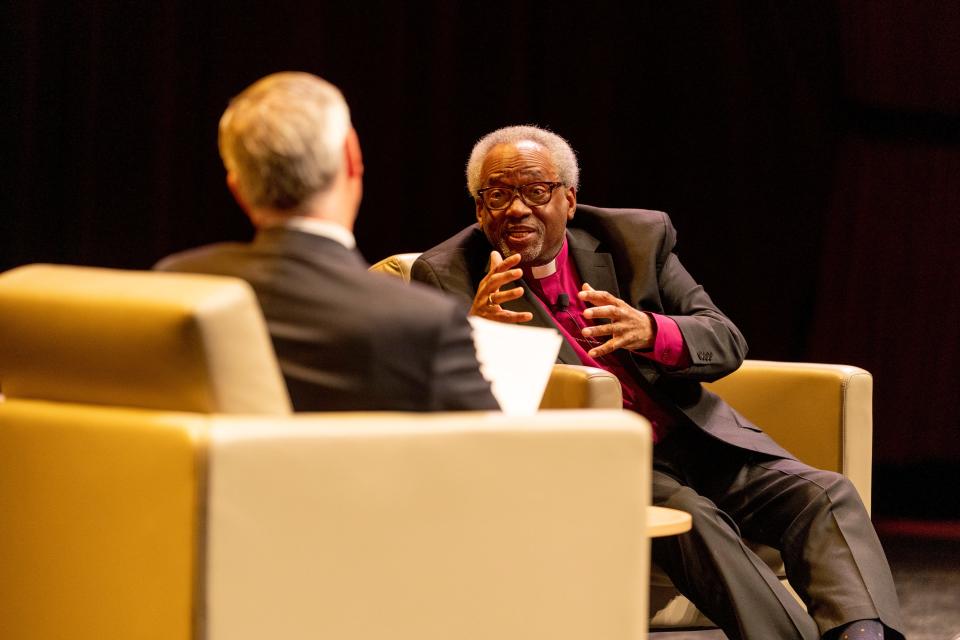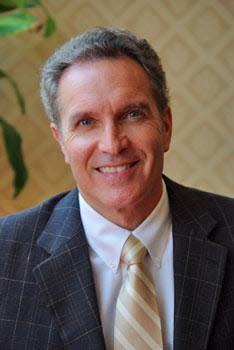Ten Commandments in the classroom hinders religious freedom for all including Christians
- Oops!Something went wrong.Please try again later.
"The fondness of magistrates to foster Christianity has done it more harm than all the persecutions ever did." —Rev. John Leland, Baptist Leader in Colonial Virginia
Louisiana Governor Jeff Landry and his Republican colleagues have passed legislation requiring all public schools and universities to display a poster-sized version of the Ten Commandments in “large, easily readable font.”
These officials surely know that even our current Supreme Court is almost certain to strike down their new law as a violation of the Constitution’s prohibition against laws “respecting an establishment of religion.” If mandating the display of a sacred text isn’t a law respecting an establishment of religion, nothing is.
But that’s missing the point. The point of such laws is for show. Political theater. In red-state Louisiana, it’s good politics to portray yourself as being on God’s side. Never mind that Jesus warned against those who make a show of their faith. Southern churches mostly ignore those passages anyway – tending to focus instead on the Bible’s dos and don’ts.
But suppose I’m mistaken. Suppose the Supreme Court upholds the Louisiana law and a bevy of southern states immediately enact their own copycat versions of it. Would that be so bad?
Yes, and here’s why.
This law will violate religious freedom for all
Let’s start with the legal reasons before moving on to the moral and religious ones.

America is a pluralistic society. In Los Angeles alone, the Mass is conducted in more than 40 languages. And that’s just the Roman Catholics. According to the Pew Research Center, we also have millions of Jews, Muslims, Buddhists and Hindus to go along with the hundreds of different Christian denominations and sects. In short, there is no religious consensus in America. Never has been.
Once we begin allowing the government to pick and choose which religions it will promote – or discourage – the lid flies off. It will be the Mormons in Utah, Jews in New York, Muslims in Detroit, Catholics in New Orleans and Baptists in Birmingham.
Tennessee-endorsed Aitken Bible tied to national movement to erode church and state
Where does it stop? I’ll tell you where. With bloodshed. It’s what went on in Europe for hundreds of years before the founding of America – whose founders wisely protected us from such sectarian strife by including a legal prohibition against any type of religious test for public office (See Article VI of the U.S. Constitution) as well as laws respecting an establishment of religion (See the First Amendment of the Constitution).
The government should not have a say in theological debate
Now for the moral and religious reasons to oppose this law. Any sort of government coercion in matters of faith – any message that conveys that a particular religion should be favored or disfavored – violates liberty of conscience – that sacred right of every human being to choose his or her own personal beliefs. As Thomas Jefferson famously said, “Almighty God hath created the mind free,” and it is none of the business of government to tell any of us what we should or should not believe.
With Jesus as their example, colonial Christians understood this. Jesus never once solicited the civil authorities to assist his spiritual crusade. To the contrary, his only direct comment on the subject implies a clear separation of church and state. “Render unto Caesar the things that are Caesar’s and unto God the things that are God’s.” To Jesus, God’s things and Caesar’s things are not the same.
Contrast that with the European model where some churches are favored – and in many cases financed – by the state. Yet these church buildings stand empty of all but the tourists. Government establishment has been the kiss of death.
So ask yourself, good Christian. Do you favor the sort of arrangement in Iran or Saudia Arabia where the clergy run things and faith is imposed? Or do you prefer that church and state each stay in its proper lane? You may think that posting the Ten Commandments in every school is a harmless acknowledgement of our religious heritage, but believe me, it is more. It is a dangerous step towards a slippery slope that should be condemned by every freedom-loving American.
Especially the Christians.

Buzz Thomas is a retired Baptist minister and professor of constitutional law as well as a member of USA Today’s Board of Contributors.
This article originally appeared on Nashville Tennessean: Freedom of religion: Mandating Ten Commandments is a slippery slope

